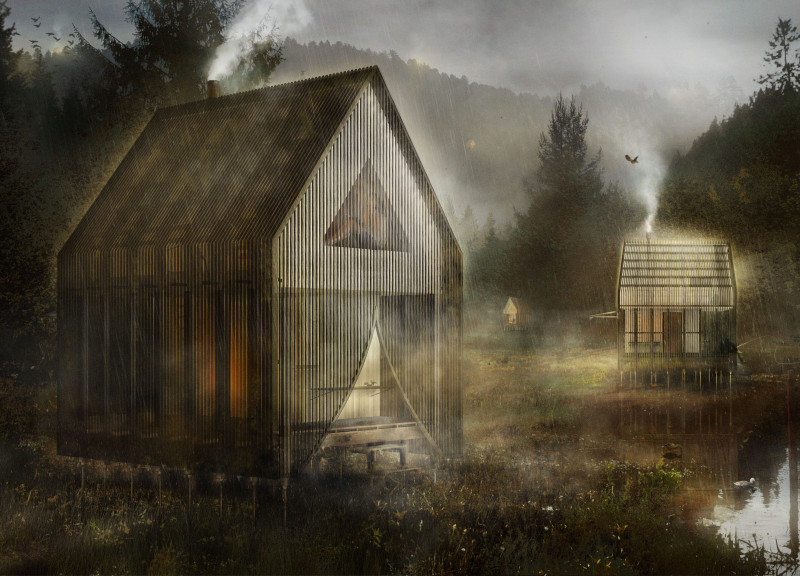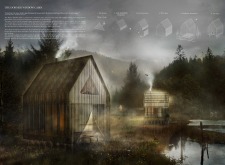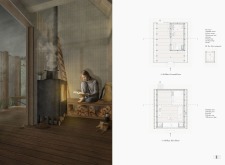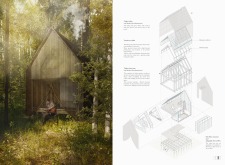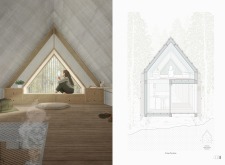5 key facts about this project
The Dormer Window Cabin serves as a meditation refuge in a peaceful natural setting, designed to promote introspection and a deep connection with the surroundings. The design is based on a triangular form, which stands for balance and concentration. This shape transitions into a small dormer window that emphasizes intimacy. Positioned above the ground, the cabin allows visitors to engage in quiet reflection, creating an atmosphere ideal for meditation while efficiently using space for a variety of functions.
Design Concept
The cabin's layout emphasizes tranquility and separation from the outside world, encouraging visitors to focus on their thoughts. The space is compact yet thoughtfully organized, ensuring all necessary functions are met without compromising user comfort. Multi-permeable layers are integrated into the design, filtering natural light and creating a soothing atmosphere throughout the day. At night, the warm light from the chimney offers a sense of comfort, subtly connecting the cabin to its darkened surroundings.
Materiality
A translucent envelope is central to the project, defining three key levels of space: exterior, semi-exterior, and interior. This skin merges indoor and outdoor areas, providing comfort while shielding from external elements. The materials chosen reflect the vertical lines of the surrounding forest, allowing sunlight and wildlife to enter through the tent-shaped opening, which enhances the bond between occupants and nature.
Structural Integration
Timber skins are employed to create shelter and connect the interior with the outside, reinforcing the ideas of balance and unity in the design. The dual-skin polycarbonate façade offers effective thermal performance and protection against changing weather. Additionally, a sub-floor structure with adaptable screw piles allows the cabin to be placed in various geographical contexts without losing its design principles.
Through the careful arrangement of layers, spatial considerations, and thoughtful integration with nature, the project becomes a sanctuary that aligns with its environment. Light filters through the translucent skin, creating a soft and inviting atmosphere that enriches the meditative experience inside.


